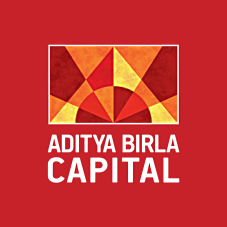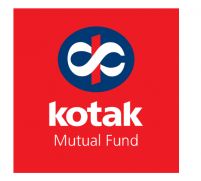Unlike most mutual fund schemes who invest your money, Debt funds generate returns by lending your money to other companies or govt. entities.
By deciding who, when, and how to lend money to specific parties such as the Government Of India, Banks, PSU, Housing companies, etc.
Debt funds are able to create regular and low-risk returns. Along with this, factors such as the lending amount, type of borrowers, lending period, etc. define how safe a debt fund is.
For example, if a debt fund is lending to only Government entities, it will often be much safer than one that lends to private sector companies.
However, this can also lead to a reduction in the amount of income the fund scheme is able to produce. So, the question arises, which debt fund should you invest your money in?
Well, to help you answer this, we have prepared a list of the best India debt funds with various details to help you make your decision.
Also Read: Best Site to Learn Stock Trading in India, Earn Money Online Without Investment for Students & Semiconductor Companies Stocks in India
Invest in Top 10 Performing / Best Debt Mutual Funds in India (2022)
1. UTI Bond Fund

This is a medium-long term fund that comes under the UTI Mutual Fund scheme.
The debt fund has been providing investors with an average return of 6.83% since inception And with greater returns in the past year coming up to nearly 16.5%.
Apart from this, the fund’s most valuable holdings consist of GOI, Punjab National Bank, Food Corporation Of India, and other large firms.
Features
2. UTI Banking & PSU Debt Fund

The UTI Banking & PSU Debt Fund is a medium-sized fund that has delivered an annual return of 7.15% since its inception.
This fund is able to maintain constant returns but has shown minimal ability to control losses during bearish markets.
That being said, it is focused on generating a steady stream of income while keeping risk low.
Features
3. Nippon India Strategic Debt Fund

This fund scheme from Nippon India Mutual Fund was launched in mid-2014.
And is focused on providing investors with a balance of safety, liquidity, and income
However, while the fund does have above-average 1-year returns of 15.85%.
It has not performed comparatively well from a long-term perspective.
Also, the fund often falls behind when it comes to mitigating losses in a falling market.
Features
4. DSP Government Securities Fund

Having been in existence for more than 9 years, the DSP Govt Securities Fund is one that has shown avg. levels of return, risks.
The fund invests primarily in Central Government securities with its largest holdings being in the GOI and RBI.
Thanks to this, it is also able to control losses well in falling markets and provides a safe option for short-medium term investors.
Features
5. Sundaram Corporate Bond Fund

The Sundaram Corporate Bond Fund is a medium-sized fund in its category and comes under the Sundaram Mutual Fund scheme.
Over the past 9 years, the fund has managed to provide an average return of 7.72%
And doubled the money invested in it during inception.
Along with this, the Sundaram Corporate Bond Fund also has a high credit profile which indicates that the fund lends to excellent creditors.
Features
6. Invesco India Credit Risk Fund

The Invesco India Credit Risk Fund has been in existence for nearly 8 years with the goal of providing investors with accrual income and capital appreciation.
The fund scheme has managed to maintain an average yearly return of 6.15% which is comparable to most funds in this category.
Most of the fund’s holdings are in GOI, Muthoot Finance Ltd., National Housing Bank, and other similar firms.
Features
7. Axis Banking & PSU Debt Fund

This Banking & PSU mutual fund scheme is from Axis Mutual Funds and has been in existence for more than 9 years.
The fund has delivered an impressive average yearly return of above 8% And thanks to which it has been able to double investments in 9 years.
In addition to providing an above-average rate of return, this fund is also much more efficient at mitigating losses in slower markets.
So, it is a profitable and low-risk option for long-term investments.
Features
8. PGIM India Banking & PSU Debt Fund

A mutual fund scheme from PGIM India, their Banking & PSU Debt Fund is designed to generate income And capital growth through investment in debt instruments in India.
The fund is managed by Puneet Pal and has managed to maintain a high average annual return of 8.17% since its inception in 2013.
While the find scheme may not have the best 1-year return at 3.17%, it has proven time and time again that it can mitigate losses and maintain decent returns throughout falling markets.
Features
9. Aditya Birla Sun Life Medium Term Fund

This fund is a Medium Duration fund scheme that was launched in January of 2013.
Since then, the fund has managed to provide average annual returns of 8.08% which is in line with most similar funds.
The fund charges an expense ratio of 0.87% which is slightly higher than the market average for such fund schemes.
As for the primary holdings, the Aditya Birla Sun Life Medium Term Fund is invested in GOI, Uttar Pradesh Power Corporation Ltd.,
And Jharkand Road Project Implementation Co. Ltd. and other similar firms. That being said, the fund is currently unavailable due to which you cannot invest in it until it is re-opened.
Features
10. Kotak Medium Term Fund

With an average annual return of 8.59% since its inception, the Kotak Medium Term Fund manages to stay above most other fund schemes in the Medium Duration category.
Similarly, this fund scheme charges an expense ratio of 0.46% and has a decent ability to control losses in falling markets,
which are both statistics that put it up as an average fund in the category. As for the minimum investment in this fund, it is a bit higher than most others and you will need at least ₹5,000 Lumpsum or ₹1,000 regularly to start a SIP.
That being said, the fund has a moderate risk level so your money will not be at too much risk.
Features
Types Of Debt Fund
There are various types of debt funds that you can invest in. Some of the most common are as follows:
Who Should Invest In Debt Funds?
When it comes to debt mutual funds, they are best for beginner investors who are looking to achieve their short-term financial goals.
This could be increasing their capital amount or building a side income within the span of 5 years.
Also, if you are looking for an instrument to park your funds in for less than 5 years, debt funds are a great solution for you.
However, if you are looking for long term solutions, equity funds are much better suited.
Advantages Of Debt Fund
Some of the most prominent advantages of debt funds are:
Risk Of Debt Fund
Things To Consider Before Investing
Some things you should consider as an investor before putting your money into a debt fund are:
Taxation On Debt Funds
Taxation on best funds is divided into two types depending on how long the fund is held.
These are short term capital gain tax in case the fund was held for less than 3 years and long term capital gains if it was held for more than 3 years. The way both types of taxes work is as follows:
Conclusion
Using this list, we hope you are able to identify the differences between the various debt funds and understand how they work.
So, it should be much easier for you to figure out which debt mutual fund matches your preferences and is suitable for your investment.
However, whatever you plan on doing, make sure to go over the fund in detail before making an investment as there are always risks involved.
Frequently Asked Question (FAQs)
1. Which is the best debt mutual fund in India?
Choosing one best debt mutual fund is difficult as each of them is designed for different goals and can be performing towards them well.
That being said, if you were to look at one that has been showing regularly positive performance, it would have to be the Kotak Medium Term Fund.
2. Which debt funds are safe?
Debt mutual funds often carry less risk when compared to other types of mutual funds. That being said, if you wish to look for the safest type of debt fund to invest in, this could be Banking & PSU funds as they are minimally affected by interest rate risk.
3. Are Debt funds better than FD?
Yes and no. While debt funds can provide higher liquidity and returns as compared to fixed deposits, they do not have the same level of security.
This is because no matter where your money is invested, smaller risks such as interest rate risks are always present when your money is in a mutual fund. However, debt funds are often the lowest risk options making them a great alternative for fixed deposits.
4. Which debt fund returns is best for the short term?
The best type of debt fund for short term investments is overnight funds. These funds invest in securities that have a maturity of 24 hours such as reverse repo. Thanks to this, they are able to provide low risk and high liquidity for short term investors.
Also Read: Check out my reviews of the best image editing software, the top choices for video editing software, and my full guide to start a blog for beginners.

